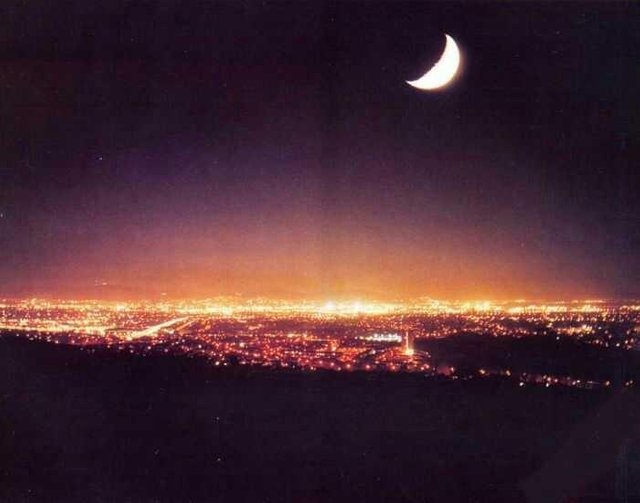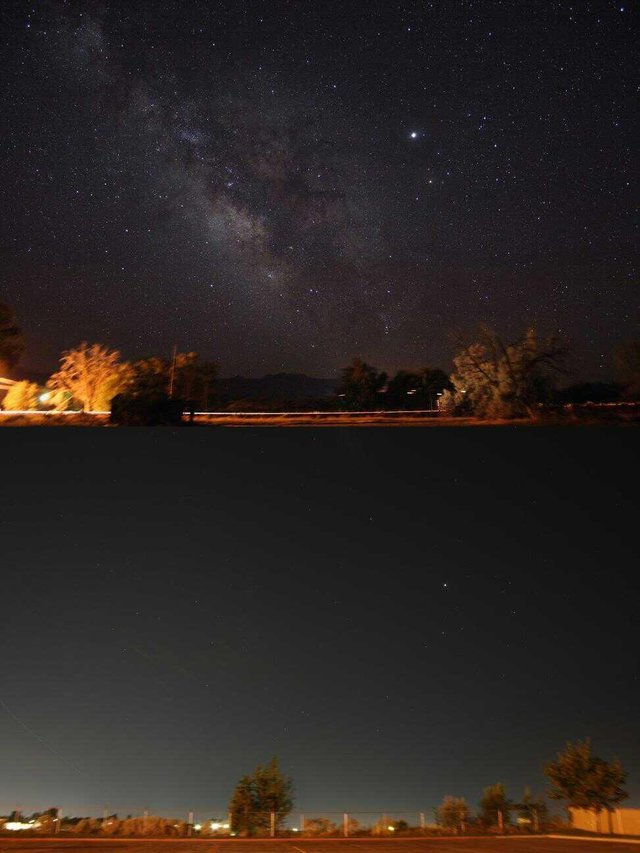Why don't you see stars at night?
Ever wondered why you can't see any or much stars at night?!
This is a simple and clear issue, with a unique answer. I see other replies mentioning weather conditions, dark adaptation and so on. That's just so much hand waving, given that the first thing you said was "I've always lived in somewhat large cities".
The core problem here, by a very wide margin, is light pollution if you live in a large city. This is the one factor, above everything else, that affects your ability to see the stars.
Here's a light pollution map:

The white zones are the worst, and they are in the middle of the cities. Black zones are the best.
Here's a somewhat better (but not perfect) comparison of a dark sky versus light polluted sky (your picture was taken with a very long exposure that doesn't look very realistic):

The dome of light above the city is very visible if imaged from afar:
enter image description here
Long exposure pictures in cities will reveal the orange skyglow, which is the main reason why you can't see the stars - it's like noise masking off the faint light from the distant objects:

Light pollution affects primarily the observations of faint objects, such as nebulae or distant galaxies. Bright objects such as the Moon, the big planets, or some of the bright stars, are not affected by light pollution.
Using a telescope with a large aperture alleviates the effects of light pollution to some extent, but it cannot work miracles. A dark sky is always better.
Usually a 1 hour drive away from the city will bring you in a place with dark sky, free of light pollution - but it depends on several factors. In such a place you should be able to see the Milky Way with your naked eye. The Andromeda galaxy also is visible with the naked eye if the sky is dark enough.
Credits - physics.stackexchange.com/
In my country, I don't really see many stars. That could be why other countries can see more stars.